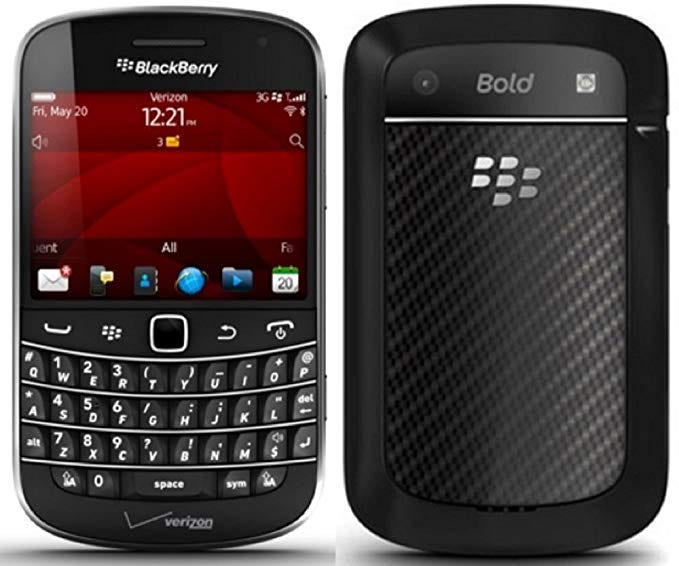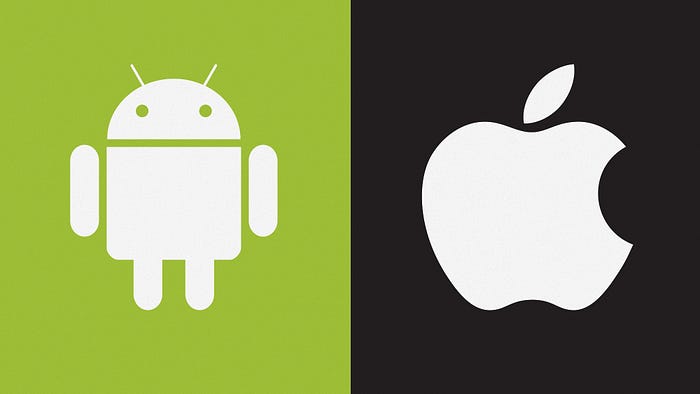What happened to BlackBerry?
In September 2018, BlackBerry announced they would stop making phones which marks the end of an iconic product within the internet era. There was a time where everyone had a BlackBerry and BlackBerry’s messaging service ‘BBM’ was the ‘Whatsapp’ of today. The once cultural phenomenon has since been taken over by the likes of Apple and Samsung leaving BlackBerry with just 0.3% of the smartphone market. So what actually led to the downfall of BlackBerry?

Ignoring Touchscreen
A key reason to BlackBerry’s failure is their ignorance in choosing to stick with the Querty keyboard whilst leaders like Apple provided a full touchscreen interface to which consumers preferred. Although previously BlackBerry’s had been popular due to their ease of use with instant messaging and firing off quick emails through the keyboard and scrolling ball.

In today’s age phones are virtual- and augmented-reality tools. They’re for taking and sharing photos, video chatting, playing games, and so much more. Even within text boxes, we’re using emojis, stickers, voice-typing, GIFs and a thousand other things you can’t do with three rows of hardware QWERTY keys.
Bad Designs
Another major issue with BlackBerry was its horrible phone design. Examples such as the BlackBerry Priv and BlackBerry KEYone showcase their resistance to change. Maintaining their keyboard within the phone carries dead weight. The hybrid design is unnecessary, one keyboard is enough and “having the option” of a typing keyboard seems somewhat redundant. Whilst the likes of Apple were innovating, tweaking and examining every aspect of the iPhone.

BlackBerry’s phones were heavy, clunky and never looked nice. Whilst you look at an iPhone and it makes you want to pick it up, it’s sleek, slender and looks beautiful.
BBM Stubbornness
BBM helped capture the younger teenage audience with its faster approach to messaging and made texting appear boring. Features such as Status updates, pinging a user and groups were really interesting features BBM users had at a time where instant messaging was limited. Yet when BlackBerry started freefalling through the market, they thought BBM would save them. Rather than let BBM be installed on other devices, they continued to make it a blackberry exclusive. They eventually changed their mind but by then it was too late — Whatsapp, Kik and iMessage were already dominating.
Insistence on BlackBerry’s OS
Smartphones became a huge thing because of the ability to install any kind of app you want and transform your phone to something magical instantly. From Games to productivity apps, the Appstore provides a plethora of options to users. But with BlackBerry’s OS you couldn’t do this and even today there is only a small portion of apps available. Apps like Facebook and Twitter on the BlackBerry were also difficult to use and you only got half a screen to view the content.

Losing the corporate market
BlackBerry covered two main core markets within its prime, teenagers who used BBM (BlackBerry Messaging Service) and corporate professionals who used the phone for business use. The firm dominated the corporate market at a time when the ability to actually do meaningful work on a mobile device exploded. It also boasted the highly secure platform that ensured content was always encrypted and uncrackable.

At least that was the claim until governments around the world started demanding access.
BlackBerry always said that it would never cave into such demands, but rumours abounded that it had done so in nations such as India and Pakistan, no doubt unnerving some security managers.
BlackBerry’s success of selling to IT departments of huge corporations is what kept the momentum. Imagine the Sales Director of BlackBerry seeing 90% of all revenue coming from Enterprise, it would have been easy for him to just focus on this market segment and forget that anything else existed. However their neglect of not focusing on the consumer electronic market failed to appeal to the casual audience which made up more of the market.
Underestimating the competition
Perhaps BlackBerrys greatest issue was its lack of respect for competition. While all the tumult and evolution was happening on the Android and Apple front, BlackBerry was more concerned with protecting what it already had instead of conquering new lands. It’s the very definition of complacency to think that you have more room for error than you actually do. And that was BlackBerry, a company that knew it had a lot of assets and advantages, and therefore exhibited a reluctance to embrace change and a consistent smugness about what it had already accomplished. A prime example of its reluctance for change is things like keeping BBM locked down to its own hardware in a world where the cross-platform WhatsApp grew into a $19 billion business.

Conclusion
To conclude BlackBerry was once the Apple of today but due to its arrogance and stubbornness to change has led to the downfall of the phone. It is a great example that if you are not willing to try improve, push boundaries especially within the Technology market. You will get left behind. The bold move for Apple to get rid of the headphone jack was risky but is now a feature of modern phones. This is the type of action BlackBerry should have been making when its product was in its prime. To summarise BlackBerry’s failure to adapt, lack of consumer insight and poor design led to the demise of BlackBerry.
Sources Used:
https://www.theverge.com/2016/9/30/13119924/blackberry-failure-success